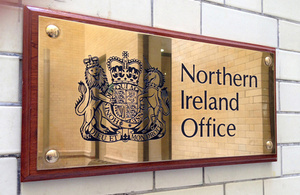Transport Secretary announces up to £3 million for coach services to meet Christmas travel demand
- up to £3 million funding to be made available to provide up to 80,000 more seats on coach services over the Christmas travel window (23 to 27 December 2020)
- this is in addition to recently announced measures to support safe journeys over the festive period
- passengers urged to plan carefully, book ahead and follow guidance if they decide to travel
A support package worth up to £3 million that will enable coach operators to provide additional scheduled services over the Christmas travel window, has today (12 December 2020) been announced by Transport Secretary Grant Shapps.
The government is working with the coach industry, including National Express, megabus and Snap – who together provide a network of coach services covering Great Britain – to ensure extra scheduled services are provided over the Christmas travel window (23 to 27 December), including on Christmas Day and Boxing Day.
People are reminded that however they choose to travel this Christmas, they must plan carefully and book ahead where possible to avoid disappointment, as availability could become limited and they may not be able to travel on their preferred service.
They should also make sure they:
- regularly sanitise their hands
- wear a face-covering unless exempt
- social distance where possible while travelling
Coach operators are currently running reduced networks due to the impact of COVID-19 on demand. The funding announced today will enable scheduled coach operators to boost services to up to 75% of pre-pandemic services – helping more people travel safely to their Christmas bubble should they wish. The move will make up to an additional 80,000 seats available.
The government has set out that people can travel to form a Christmas bubble, composed of no more than 3 households, between 23 and 27 December. Anyone travelling to or from Northern Ireland may travel on the 22 and 28 December.
To minimise disruption and help people travel safely to their bubble, the government set out a series of measures last week, including:
- lifting 100s of miles of roadworks
- enhancing rail services
- postponing and accelerating rail engineering works
- cutting ticket charges
The new support for scheduled coach services builds on this and ensures that, should there be pressure on rail services, people will have alternative travel options.
Transport Secretary Grant Shapps, said:
We’ve already set out important measures so journeys can run as smoothly as possible this Christmas. Today’s funding announcement for the coach sector goes one step further, ensuring there are more options available for people wanting to travel to celebrate with loved ones and friends.
We remind everyone that it’s essential to plan their journey and book ahead, be considerate of other passengers and staff across our transport network, and follow the guidance, including keeping space and wearing a face covering, unless exempt, on public transport.
Christmas travel co-ordinator Sir Peter Hendy said:
This is very welcome, as it gives additional and flexible COVID-safe public transport capacity for the Christmas period. I’ll continue to assure transport provision so we can get everyone to their Christmas bubbles safely. Please book early to help achieve that.
Alison Edwards, Head of Policy at The Confederation of Passenger Transport UK, said:
The pandemic has made it challenging to run scheduled coach services. It’s welcome to see this recognised by government. Coaches provide a vital means of transport during the Christmas period and will be running throughout the festive period, including on Christmas Day. This funding will mean more coaches on our roads to help people travel safely and ease overall pressure on public transport.
Chris Hardy, Managing Director, National Express Coach, said:
Maintaining the UK’s largest network of scheduled coach services has been challenging but we’ve worked hard to provide safe, low-carbon travel over the festive season.
This funding will allow us to increase the frequency of some routes, introduce new direct services and add more locations on our 23 to 27 December timetable.
We’ll initially be doubling the mileage of the network and will further increase the number of vehicles and seats available on routes as necessary. The flexibility of coach travel means we can respond to demand and quickly and safely increase capacity with covid-secure measures in place.
Mark Venables, Managing Director for megabus, said:
Public transport continues to play a vital role in helping to connect communities, and that’s even more important this year as people travel to reunite with their families and loved ones for Christmas.
We’re pleased to have worked in partnership with the UK Department for Transport to provide thousands of additional seats on our megabus coaches this Christmas, and we’ll be running right throughout the festive period, including on Christmas Day.
Seats are selling fast, so we’re urging people to plan ahead and book their travel as soon as possible. Our megabus services offer safe, environmentally friendly, easy, hassle-free and flexible travel and provide a great alternative to travelling by car.
Thomas Ableman, Founder & CEO of Snap, said:
We’re thrilled to be able to help people see their family at Christmas. Our network of incredible quality local coach operators are ready to get people to where they need to go with safety, security and a smile. We know people have really valued their local small businesses this year, so are sure they’ll continue to do so by booking their travel with a local coach operator through Snap.
